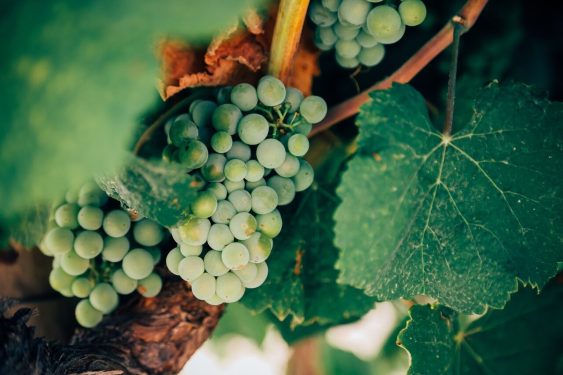Your Mini Basket

What Is Natural Wine?
To kick off a month focussing on natural wine, we ask the key question... What is it?
What is wine if not natural? Man-made? Well, to a varying extent, yes. The addition of chemicals and the use of various processes to fundamentally affect a wine in the winemaking process, in the vineyard and the winery, challenges notions of how our wine is actually made, and from what, without ever becoming part of the wider debate about what we eat and drink. Until recently... proponents of the natural wine movement suggest that by reducing the influence of man on wine, that wine can become a better expression of nature itself. It is once again a natural product.
In the last year, we’ve become increasingly taken by this idea, which we’ll be covering in the shop and online this month. August 17th sees our New Trends tasting, with the support of the importer Les Caves de Pyrene, who have done so much to make these wonderful, eye-widening wines available to the public. From them, and our other brilliant importers, we’ve gradually built a small but well-formed range of natural wines to co-habit with our existing range.
So, what is it?
So, let’s get the obvious question out of the way. What is natural wine? (We’ve looked at this briefly in the context of Organic wine previously.) Well, simply, it is wine made with less intervention, leaving nature to take its course. There are of course limits. Wine’s natural course is to turn into vinegar, but with the right touch, a sensible hand in the vineyard, maintaining healthier vines and without resorting to the use of chemicals, the results can be extraordinarily vibrant and more importantly, delicious.
To sulphur, or not to sulphur?

Mathieu Lapierre, producer of Raisins Gaulois, and his gamay vines at Morgon. © Jameson Fink, 2013, Flickr
The most prevalent of these chemical inputs is sulphur, often added to wine as the gas sulphur dioxide or in solid form as potassium metabisulfite. It has the effect of sterilising whatever it is added to; sprayed onto grapes before harvest to protect them as they transported to the winery, or added to the must, sulphur will kill off any unwanted bacteria or yeasts.
This can then be inoculated with laboratory cultured yeasts, which intrinsically results in a more uniform, consistent product. Sulphur can also be added after fermentation to stop any consequent chemical changes, such as the conversion of alcohol into acetic acid, or vinegar. These technical details start to make things sound a lot less 'natural' to those unfamiliar with wine-making.
If a wine is made carefully, with healthy fruit and in a clean environment, it shouldn’t necessarily need any sulphur added. On the contrary, without it, the abundance of bacteria left to live in a wine become an important part of its character. Native yeasts in the air and on the grapes can be left to spontaneously ferment the must, bringing with it a complexity unique to the locale.
This isn’t to say that good wine cannot be made with sulphur, but that as little as possible should be used in the interest of preserving the wine’s ability to express terroir. Those that do use a small amount of sulphur will only do so at bottling to ensure that the finished product doesn’t spoil in transit, and usually only in difficult vintages.
Taste Test
Natural wines are often noticeably different from ‘conventionally’ made wines, as Isabelle Legeron MW notes in her landmark text ‘Natural Wine’. “-when you drink a natural white, particularly a wine made without any sulfites at all, the combination of texture, ripeness, and amplitude in the palate sharply contrasts with conventional counterparts made in a temperature-controlled environment, with added yeasts, sterile-filtration etc.”
Does natural wine need to be all of these things? Not necessarily, and the line is drawn somewhat arbitrarily. Most producers of quality wine have gradually adopted one or more of the principles behind natural winemaking, and so there are a great many wines we already stock which could be classed as natural. For the purposes of the category online, we have chosen those wines made with less sulphur throughout the winemaking process and farmed organically or biodynamically (whether certified or in practice).
We hope you’ll add a bottle or two to your basket next time you’re in the shop or online and join us in enjoying these wines. Check back soon to read more about the new wines we’ve added this month.
P.S. We're not wading in on the sulfites = headaches debate. There are arguably health benefits to drinking wines that contain fewer preservatives, but we're presenting these wines on the grounds that they're lovely to drink.
Click here to view our full range of delicious, hand-picked Natural Wines!







